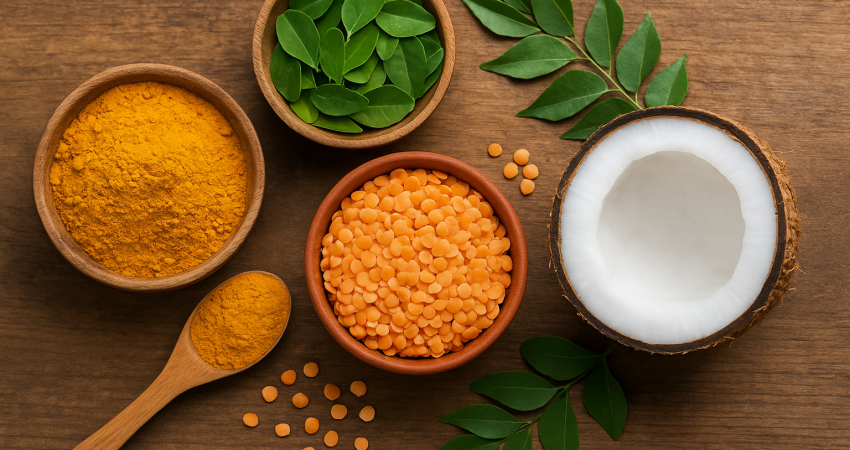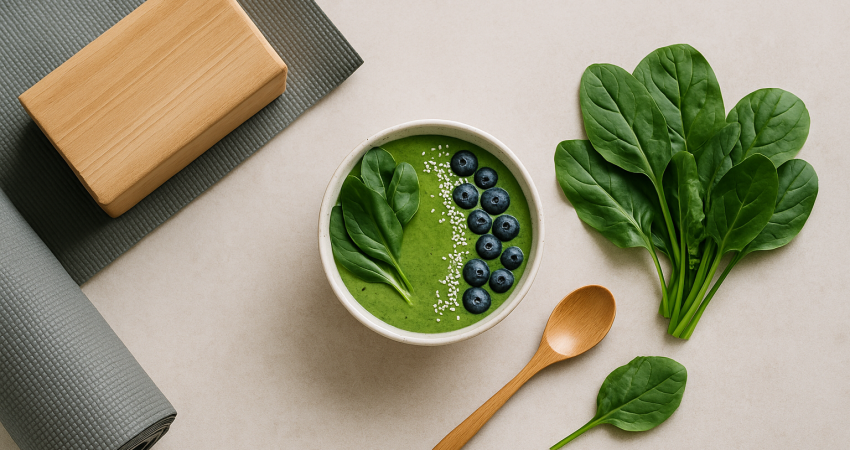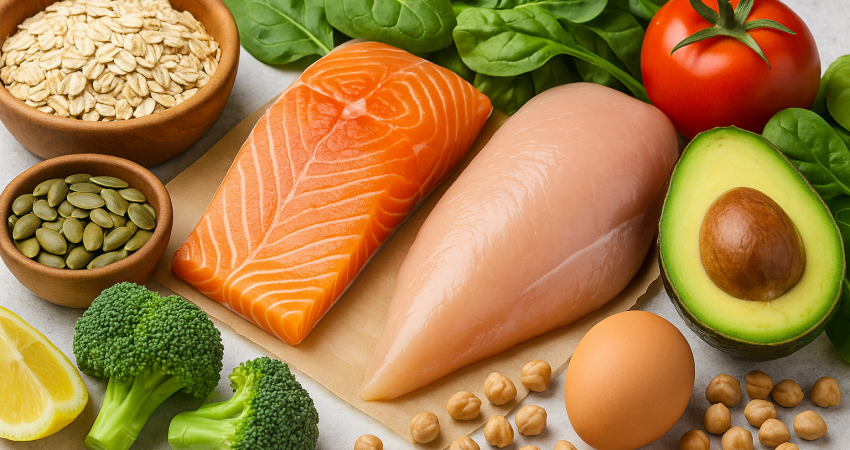South Indian Superfoods That Support Longevity and Immunity

South Indian cuisine is known for its diversity, depth of flavour, and use of natural, nutrient rich ingredients. Beyond taste, this traditional way of eating has long been associated with health, vitality, and balance. Modern nutritional science now confirms what generations in South India have practised for centuries, that many staple ingredients from this region possess powerful immune boosting and longevity enhancing properties.
This article explores the science behind key South Indian superfoods and how integrating them into a balanced diet can elevate overall wellbeing.
1. Turmeric – The Golden Healer
Turmeric has been used in South Indian households for centuries as both a spice and a medicinal herb. Its primary active compound, curcumin, has strong anti inflammatory and antioxidant properties. Research published in the Journal of Clinical Immunology shows that curcumin enhances immune function by regulating inflammation and increasing the activity of natural killer cells.
Regular consumption of turmeric, whether through curries, teas, or golden milk, supports joint health, improves digestion, and helps reduce the risk of chronic diseases. Pairing turmeric with black pepper significantly increases curcumin absorption, amplifying its effects.
2. Moringa Leaves – The Nutrient Powerhouse
Known locally as murungai keerai, moringa is one of the most nutrient dense plants on earth. It contains all nine essential amino acids, high levels of vitamin C, calcium, potassium, and antioxidants. Studies show that moringa can help regulate blood sugar levels, lower cholesterol, and combat oxidative stress.
Moringa leaves can be added to curries, soups, smoothies, or taken as a powdered supplement. Their rich nutrient profile makes them particularly valuable for people over 35, supporting energy production and immune function naturally.
3. Curry Leaves – For Detox and Heart Health
Often used to add aroma to South Indian dishes, curry leaves offer more than just flavour. They are rich in vitamins A, B, C, and E, as well as minerals like calcium and iron. Research from the Asian Pacific Journal of Tropical Biomedicine highlights their ability to reduce oxidative stress and improve cholesterol balance, supporting cardiovascular health.
Including curry leaves regularly can enhance digestion, improve hair and skin health, and contribute to natural detoxification.
4. Coconut – A Source of Healthy Fats and Hydration
Coconut, in its many forms such as oil, milk, and water, is a cornerstone of South Indian cooking. Coconut oil is high in medium chain triglycerides (MCTs), which are quickly converted into energy by the body rather than stored as fat.
Coconut water provides electrolytes like potassium and magnesium, supporting hydration and muscle recovery, while coconut milk adds a source of healthy fat that aids in nutrient absorption. Together, they form a perfect blend of nourishment for both body and mind.
5. Lentils and Legumes – The Plant Protein Base
From sambar to rasam, lentils and legumes form the foundation of South Indian diets. They are rich in protein, fiber, and micronutrients like iron and folate. A study in the American Journal of Clinical Nutrition shows that diets high in legumes lower the risk of heart disease, diabetes, and obesity.
Their combination of protein and complex carbohydrates provides steady energy, stabilises blood sugar, and supports muscle recovery, all essential components of long term health.
6. Tamarind – Antioxidant and Gut Support
Tamarind adds a distinct tangy flavour to many South Indian dishes while offering digestive and antioxidant benefits. It is high in polyphenols, which help neutralise free radicals and support healthy liver function. Tamarind also contains natural prebiotics that feed beneficial gut bacteria, aiding digestion and immune defence.
Conclusion
South Indian food is far more than cultural heritage, it is a scientifically supported model for sustainable health. These traditional ingredients, from turmeric to moringa and coconut, demonstrate how nutrition and medicine have long been intertwined in Indian kitchens.
By embracing these foods, you not only enhance immunity and vitality but also adopt a timeless approach to wellbeing that aligns with modern health science.
Ready to experience the benefits of balanced, culturally inspired nutrition? Explore Wellora’s Elevate, Power, and Pro programmes and begin your journey toward sustainable wellness.










